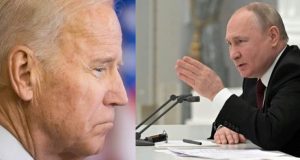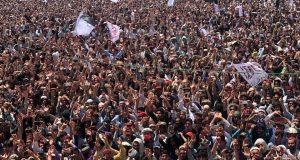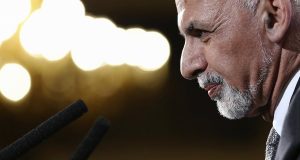In today’s Pakistan, essential freedoms are being curbed, both openly and covertly on different pretexts.
Media and internet censorship is gaining foothold in Pakistan. The current state of freedom of expression reminds us of the 2006 movie ‘The Lives of Others’ by Florian Henckel von Donnersmarck. The movie truly depicts the present situation in Pakistan vis-à-vis silencing of dissent, controlling the public opinion, monitoring of social media, surveillance of politicians, judges, rights activists, and suppression of mainstream print and electronic media and internet censorship.
The movie is set in East Berlin, 1984. The Cold War is still raging and the communist bloc conducts surveillance on writers, artists, musicians or anyone who dares to speak up against its policies. The state spies investigate every aspect of the lives of their fellow citizens and thread with wires the homes of espionage suspects.
In today’s Pakistan, essential freedoms are being curbed, both openly and covertly on different pretexts. The state has taken a set of suppressive measures against the media, political parties, rights groups, and individuals in an effort to control and strengthen its narrative, and maintain its grip on the country.
A 2015 report published by London-based advocacy group ‘Privacy International’ had claimed Pakistan’s intelligence agencies have abused their communications surveillance powers by spying on politicians, judges, activists, lawyers and journalists.
In July this year, a judge of the Islamabad High Court, Justice Shaukat Aziz Siddiqui had claimed that the country’s intelligence agencies were interfering in the working of the higher judiciary. Following this, he had excused himself from attending a workshop in England due to ‘serious security threats to him and his family’.
Politicians, journalists are being silenced through different tactics by the powers that be. Since the July 25 polls, electronic media has been forced not to broadcast or publish the interviews of politicians from opposition and protests against rigging.
In January this year, entire mainstream media imposed a complete blackout on the Pashtun Tahaffuz Movement (PTM), a rights group, comprising mostly young Pashtun students demanding missing persons be produced in courts for fair trial, end to extrajudicial killings, and demining of Waziristan along with other demands.
Geo TV, owned by Jang group, which was critical of the military, was taken off air in April this year in many parts of the country. Cable operators were forced to suspend the channel. Pakistan’s leading English newspaper Dawn was also targeted. Its distribution was disrupted in May this year just before the general elections.
Several media groups refused to publish articles or broadcast programs questioning the military’s role in polls rigging and curbs on media, and demands of PTM by several prominent journalists and writers including Talat Hussain, Babar Sattar, former senator Afrasiab Khattak, Ammar Masood and many others.
Crackdown against social media activists has also been intensified. Hayat Preghal, a social media activist from Waziristan was abducted from his home for being critical of the military, or militancy and his activism around human rights of Pashtuns affected by terrorism. Later, he was charged under Section 9 and 10 of the Prevention of Electronic Crimes Act and also section 109, 500 of the Pakistan Penal Code. According to his lawyer, Abdul Rahim Wazir, the allegations are baseless and the state could not produce anything against Preghal in the past two months.
Two years ago, a poet, Jan Hussain, from Speen Wam area of North Waziristan was picked up by security forces for speaking against the injustices, atrocities in Waziristan in his poetry. He has been in Bannu jail for the last two years.
Another social activist Raza Mahmood Khan had gone missing for seven months. He returned home on July 20th this year.
Blogger, artist, and rights activist Salman Haider was picked up by officials of secret agencies in January 2017 – an allegation the then government had denied. He returned home after 20 days.
Journalists, activists, writers critical of the state’s policies face online harassment and in some cases they are abducted or threatened. Taha Siddiqui, a Pakistani journalist escaped an abduction attempt in Islamabad in broad day light. Journalist and activist Gul Bukhari was abducted in June this year by unknown persons in Lahore and was released after a brief detention.
Pakistan is fast adopting the China’s and Russia’s model of internet censorship. The new wave of censorship includes—online surveillance of politicians, rights activists, journalists, artists, actors, writers, directors, playwrights, musicians, academics, intellectuals – anyone who questions the state’s alleged support to extremists groups, military’s role in politics, censorship, polls rigging, missing persons, and extrajudicial killings. Pakistan also announced in August this year to shutdown Twitter as it was reportedly not complying with requests to remove sacrilegious content, however, the reason is said to be increasing criticism of the military.
For the past few decades all the talk was about war against extremism and terrorism and it made people forget that the repressive communist regimes ever existed. However, the symptoms of fascists’ states can clearly be seen in several countries including Pakistan. The cornerstone of this new fascist regime is that it is being run through a system coated with democracy and the parameters for criticism are being defined by the state – what to be criticised and what not.
Freedom of press is the lifeline of democracy. If media, freedom of expression are under attack, all other freedoms are in danger. The movie ‘Lives of Others’ explains what choices must be made when faced with authoritarianism. It also tells that people living under oppressive regimes and even those executing the brutal policies can also resist it.
Political parties, media groups, journalists, bloggers, civil society, rights groups, activist and concerned citizens must fight these new methods of silencing dissent or it will simply reverse the little achievements so far made in the country’s democratic journey. These fascist policies must not be allowed to take away our freedoms.
Writer: Hamid Hussain:
The writer is an Islamabad-based journalist. He tweets at @Hamidlawangeen
 Pashtun Times Latest News
Pashtun Times Latest News




